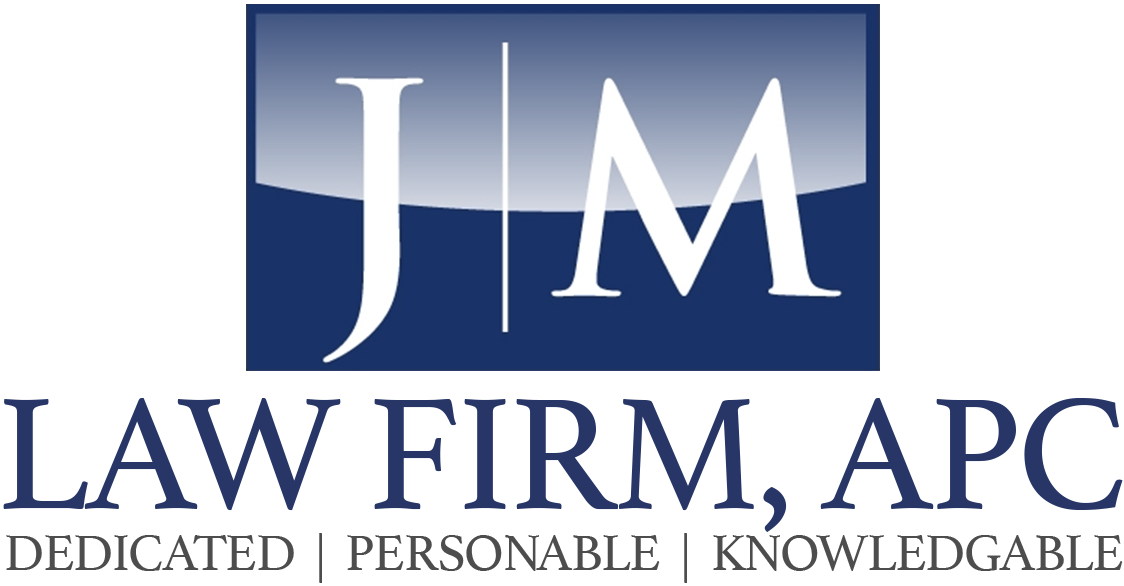Debt Settlement Links
Schedule a Free Consultation Today
IRS Debt Settlement Lawyers in Woodland Hills
Helping Clients Successfully Resolve Tax Debt for 25+ Years
Defending yourself against credit card companies and other private lenders is hard enough. But what happens when your creditor is the IRS? This federal agency has seemingly endless resources and can resort to drastic collection attempts without taking you to court first.
Reducing what you owe to the IRS may be difficult, but it is certainly not impossible—especially with JM Law Firm, APC on your side. We have spent years helping clients reorganize and reduce their debt through many methods of relief. We understand that every case is unique, which is why we develop fully personalized strategies from scratch to help clients accomplish their goals.
Learn more about:
How to Deal With Tax Debt
What Is Offer in Compromise?
Finding the Best Solution
How to Settle With the IRS By Yourself
If you choose to settle tax debt with the IRS by yourself, one of your options is filing an Offer in Compromise (OIC). Download Form 656 and Form 433-A (businesses will require 433-B) from the IRS Form 656 Booklet, then file both of those forms.
Form 433-A is for getting your current financial information together so that the IRS can determine if you are able to satisfy your outstanding tax liability. It has 10 sections and is more complex than filing your own taxes. If it is not completed properly, the IRS will reject your application for Offer in Compromise. To improve your chances of an accepted OIC, we recommend working with an experienced IRS debt settlement attorney near you.
Let’s get started with a free evaluation. Call or contact us online to schedule your appointment with a Woodland Hills IRS debt settlement attorney.
How to Deal With Tax Debt
If you have tax debt, ignoring it will lead to worse consequences. Below are some things you can do to help lessen the penalties:
File your taxes even if you cannot pay them.
Request an installment agreement.
Delay payment.
Settle for less than what you owe via "offer in compromise".
It is important to file your taxes even if you are not able to pay them off. Not filing will result in late fees or worse, jail time and fines for tax evasion. If you cannot pay your taxes, the IRS does offer solutions!
If you are eligible, you may opt for an installment agreement or a long-term payment plan. This is best for people who owe less than $50,000 (including penalties and interest) and those who need more than 120 days to resolve the balance. Note that this option can add penalties and interest to your debt.
Delaying payment may be an option for you if you can prove that paying the tax debt will stop you from affording your basic living expenses. However, the debt will continue to accrue interest and penalties as well.
Do you have tax debt? For guidance, reach out to our tax debt lawyer serving Woodland Hills, Los Angeles, and Bakersfield. Contact us online or call to schedule a free consultation. We have more than 25 years of experience and are ready to help you!
What is Offer in Compromise?
The central method of settling debt with the IRS is called the Offer in Compromise. This is an application that offers the IRS less than what you owe. The IRS generally accepts Offers in Compromise if they do not believe you can realistically pay your full amount of back-taxes. Thus, attempting to collect from you would not be worth the time and cost.
To evaluate your eligibility for forgiveness, the IRS will consider your:
Income;
Expenses;
Assets; and
General ability to pay.
To qualify, you MUST have filed all required tax returns.
Before coming to our firm, many of our clients chose not to file returns because they knew they couldn’t afford what they owed. We urge you, however, to file all returns—whether or not you can pay. This will help you avoid penalties and allow you to file a successful Offer in Compromise.
When you submit your Offer in Compromise, you will need to include your initial payment. This will either be a “lump sum cash” payment of 20% of your total offer OR the first of a series of “periodic payments” (i.e. monthly installments). However, you may meet the low-income certification guidelines, which can allow you to forego both the application fee and the initial payment.
While the IRS considers your offer, all collection activities (except for federal tax liens) are suspended, but you may need to continue making monthly payments according to your specific offer. If the IRS denies your offer, we will have 30 days to file an appeal.
Take the First Step in Achieving Peace of Mind
Schedule a free consultation with us today to discuss your unique situation. We aim to find the best solution for you.
Going Above & Beyond Your Expectations
What Makes Us Different
Client-Focused Representation
Free Consultations
Spanish & Farsi Speaking Services Available
Over 25 Years of Experience
Finding the Best Possible Solution for You
Submitting an Offer in Compromise may not be a practical option for your situation. We may instead recommend bankruptcy. While bankruptcy does not typically discharge tax debt, it can allow you to get caught up on back-taxes without the immediate threat of collection actions. It can also discharge other types of debt, freeing up more of your income to pay the IRS.
We have the skills, resources, and experience needed to help you regain control over your finances. Give us a call 1 (888) 376-1550 at or fill out our online contact form to get started. We offer same-day appointments as well as services after hours and on the weekends.
Put Over 25 Years of Experience to Work for You
Schedule a Free Consultation Today

